Condition | Result | |
Past Perfect | WOULD HAVE + Past Participle | |
If | I had won the lottery | I would have bought a car. |
IF | Condition | Result |
past perfect | WOULD HAVE + past participle | |
If | I had seen Mary | I would have told her. |
If | Tara had been free yesterday | I would have invited her. |
If | they had not passed their exam | their teacher would have been sad. |
If | it had rained yesterday | would you have stayed at home? |
If | it had rained yesterday | what would you have done? |
Result | IF | Condition |
WOULD HAVE + past participle | past perfect | |
I would have told Mary | if | I had seen her. |
I would have invited Tara | if | she had been free yesterday. |
Their teacher would have been sad | if | they had not passed their exam. |
Would you have stayed at home | if | it had rained yesterday? |
What would you have done | if | it had rained yesterday? |
Using the 3rd conditional
to express regrets
Note: Since
the 3rd conditional deals with situations that could have but didn’t
happen in the past, it is often used to talk about regrets or things we
wish had happened differently. For Example:
If I had studied harder, I would have passed my exam.
[condition] [result]
Here, the speaker could have studied harder and the result could have been passing his exam, but in reality, they didn’t study so much and they didn’t pass. It is too late for this condition to become true.
Using “- ‘d” for “would” and “had”
in the 3rd conditional
Note: In English, we often abbreviate words especially when speaking casually. Both the words “would” and “had” can be abbreviated to “- ‘d” ( apostrophe + “d” ). This can be confusing when it occurs in the 3rd conditional which uses both words in the same sentence. To help you decide which word “- ‘d” is referring to, remember that:
- “would” never appears with “if” in the condition part of the sentence. If you see “- ‘d” after “if” it must be the abbreviation of “had”.
- “Had” can never be before “have”. So if you see “- ‘d” before “have” then it must be the abbreviation of “would”.
For example:
(I had) (I would)
If I’d known it was your birthday, I’d have bought you a present.
[condition] [result]
Using other modals instead of “would” in the 3rd conditional
Note: It is possible to use other modals such as “could,” “might,” and “should” in
place of “would” in the 3rd conditional as well. Changing the modal
changes the degree of certainty, with “might” being not very sure,
“could” being about 50/50 and “should” being very sure. For example:
Using the continuous form in the 3rd conditional
Note: The continuous form can also be used in the 3rd conditional to talk about unfinished or continuous actions /states that would have resulted in the past, from possible past conditions that didn’t actually happen. The structure is the same in the condition part with “If” followed by the past perfect, while the result part takes “would” followed by the present perfect continuous form:
[If + past perfect tense] , + [would + have been verb-ing]
[condition] [result]
OR
[would + have been verb-ing] (no comma) + [If + past perfect tense]
[result] [condition]
For example:
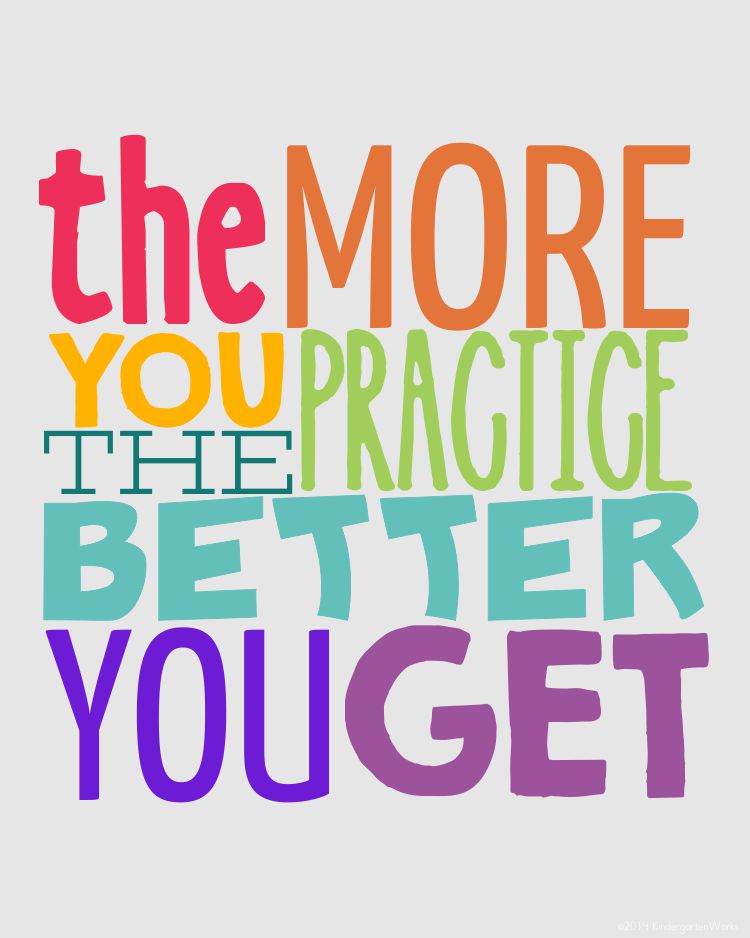
EXERCISE TWO



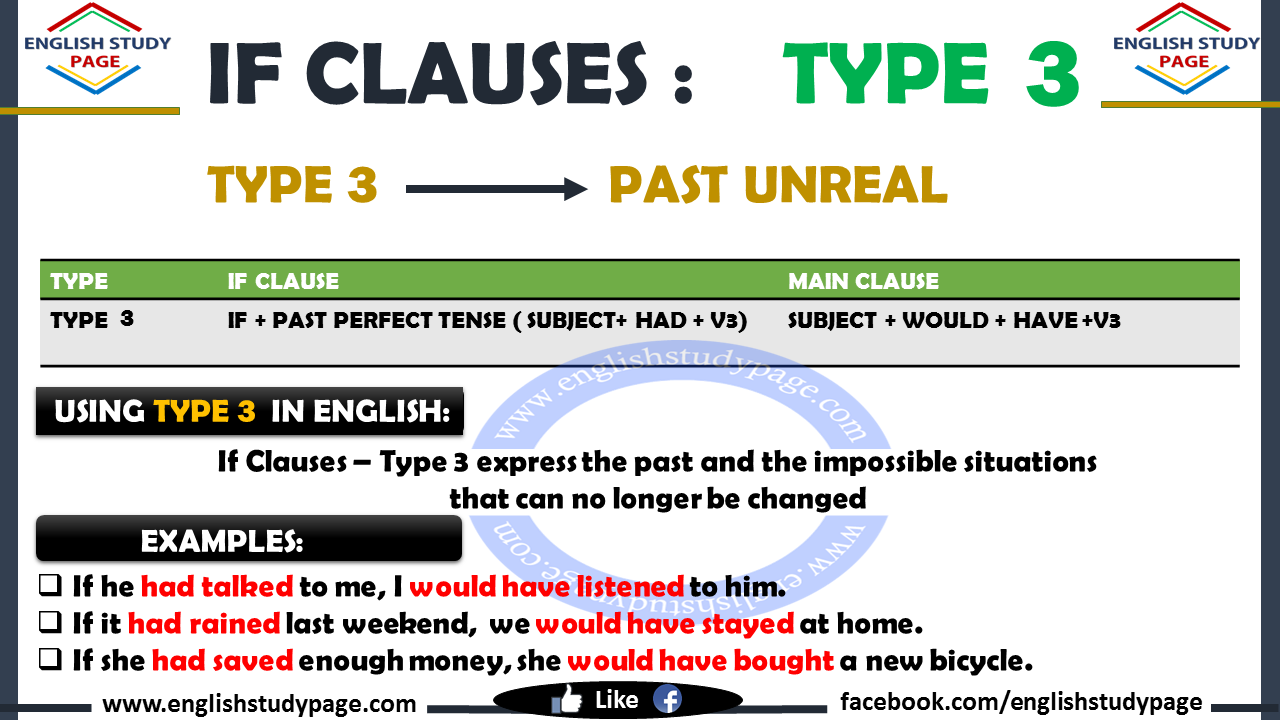
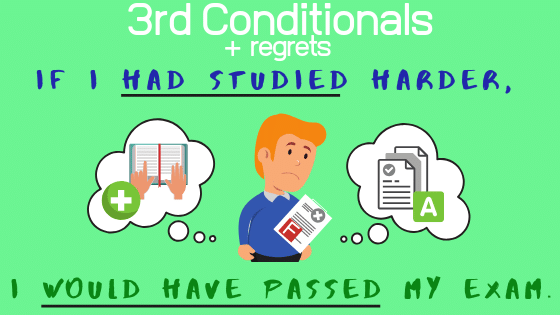
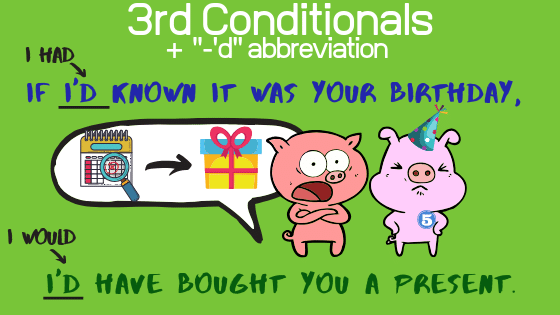
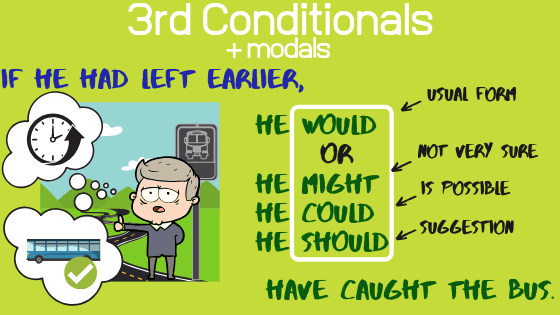
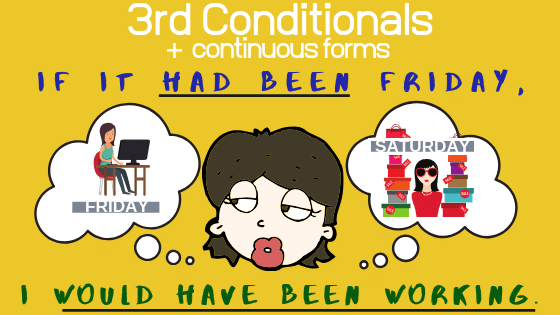
No comments:
Post a Comment